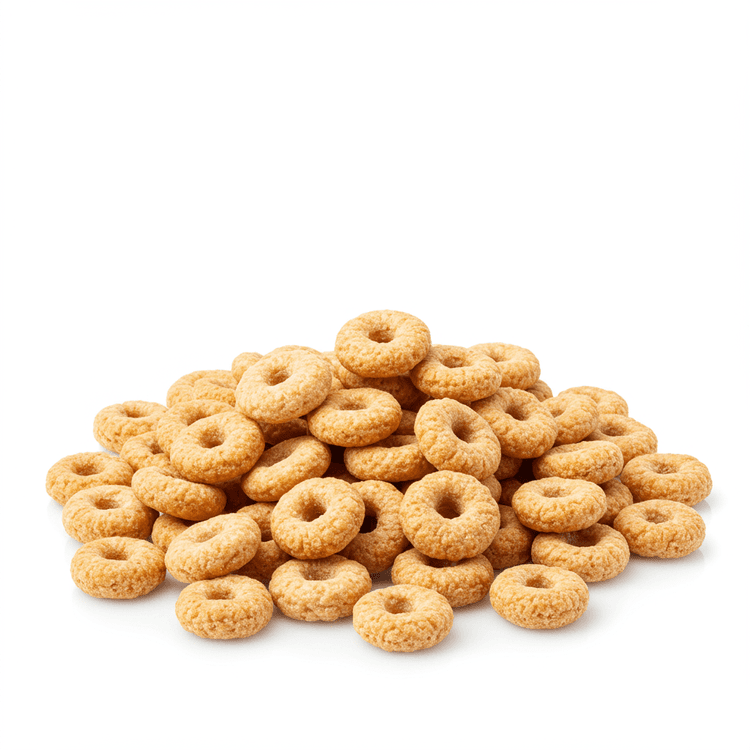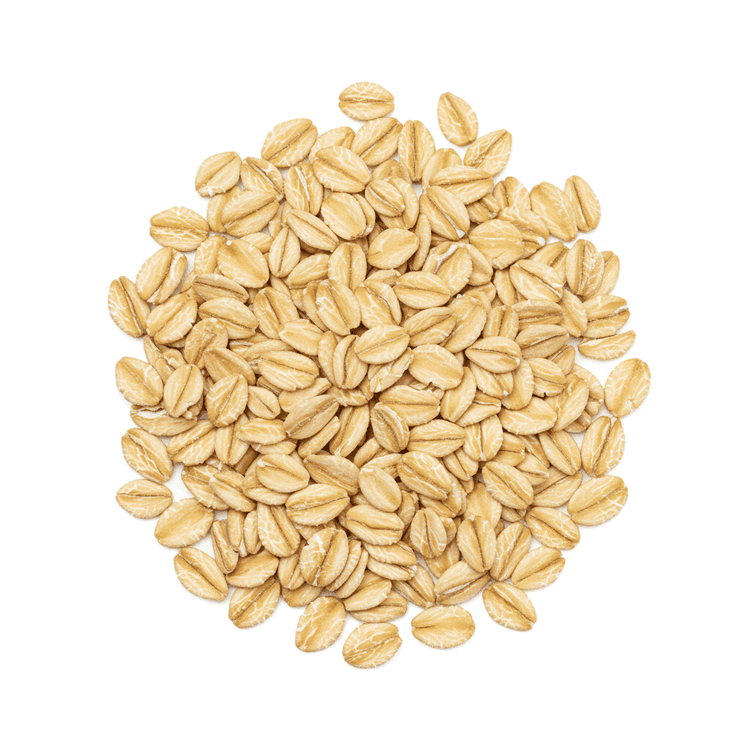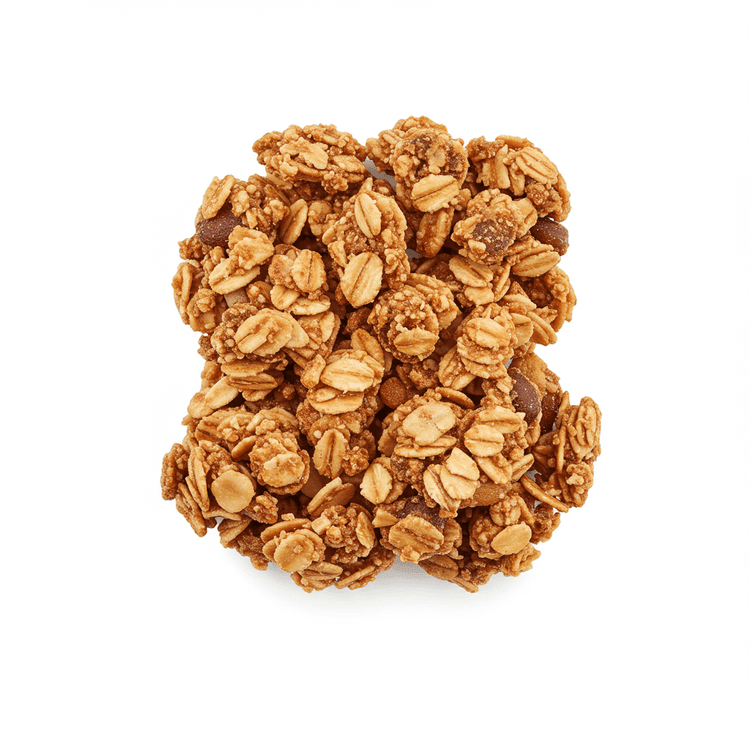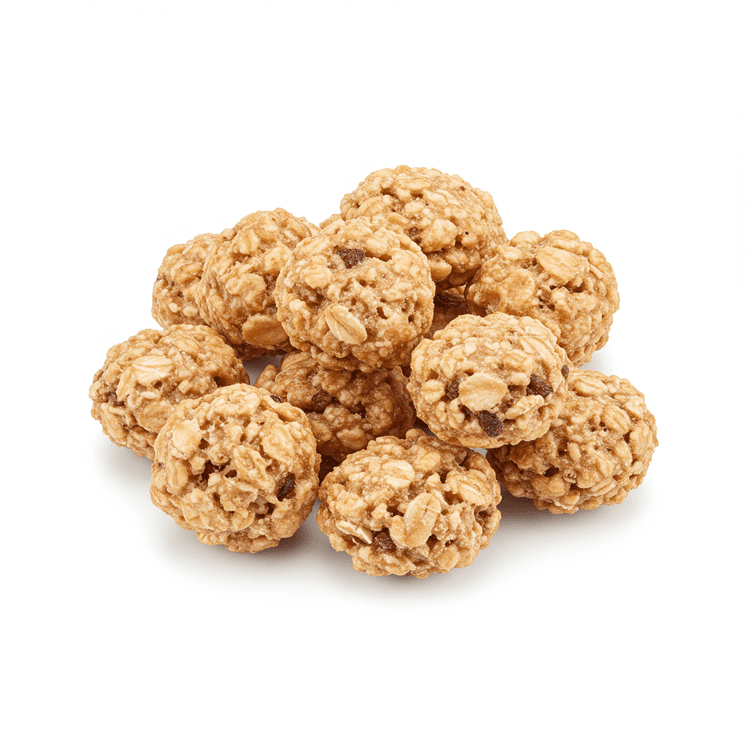
Cereal
Cereal is a breakfast staple, typically made from processed grains like wheat, oats, rice, or corn. Available in countless varieties, from crispy flakes to puffed grains, cereal offers a satisfying crunch and a mildly sweet flavor, often enhanced with added sugars, fruits, or nuts. While some cereals are whole-grain and fiber-rich, providing a nutritious start to the day, others are more dessert-like. Different types of cereal can vary greatly in texture from light and airy to dense and chewy . Visually, breakfast cereal comes in a wide array of shapes and colors, appealing to both kids and adults seeking a quick and convenient meal option. Dry cereal is shelf-stable and easy to store, making it a popular pantry item and a versatile ingredient.
Common Uses
- Enjoy dry cereal with milk (dairy or non-dairy) as a quick and easy breakfast or snack; experiment with different types of milk and toppings to customize the flavor and nutritional profile.
- Use crushed cereal as a coating for chicken, fish, or vegetables to add a crispy texture and a subtle sweetness before baking or frying. This offers a unique and kid-friendly alternative to traditional breadcrumbs.
- Incorporate cereal into baked goods like cookies, bars, or muffins to add texture and a unique flavor element; consider using a specific type of cereal to complement the other ingredients.
- Create a cereal-based trail mix by combining different types of cereal with nuts, seeds, dried fruit, and chocolate chips for a convenient and customizable snack on the go.
- Sprinkle cereal over yogurt, smoothie bowls, or ice cream to add crunch and visual appeal; choose cereals that complement the flavors of your base ingredients.
- Use dry cereal as a binding agent in meatloaf or veggie burgers, providing structure and a subtle nutty flavor.
Nutrition (per serving)
Nutrition (per serving)
Calories
389.0kcal (19.45%)
Protein
8.3g (16.6%)
Carbs
77.4g (28.15%)
Sugars
11.1g (22.2%)
Healthy Fat
3.3g
Unhealthy Fat
1.1g
% Daily Value based on a 2000 calorie diet
Nutrition (per serving)
Calories
389.0kcal (19.45%)
Protein
8.3g (16.6%)
Carbs
77.4g (28.15%)
Sugars
11.1g (22.2%)
Healthy Fat
3.3g
Unhealthy Fat
1.1g
% Daily Value based on a 2000 calorie diet
Health Benefits
- Excellent source of fiber for digestive health and regularity.
- Provides essential vitamins and minerals like iron, B vitamins, and vitamin D, important for overall wellness.
- Can be a good source of complex carbohydrates for sustained energy throughout the day.
- Some cereals are fortified with nutrients that support bone health.
- Lower sugar, whole grain options can help manage blood sugar levels.
Chefadora AI is here.
Experience smarter, stress-free cooking.
Storage Tips
To maintain the freshness and crunch of your cereal, store it in a cool, dry place away from direct sunlight. Once opened, transfer the cereal from its original packaging to an airtight container. This will protect it from moisture and prevent it from becoming stale. Properly stored cereal can last for several weeks to months beyond the 'best by' date.
Marnirni-apinthi Building, Lot Fourteen,
North Terrace, Adelaide, South Australia, 5000
Australia



